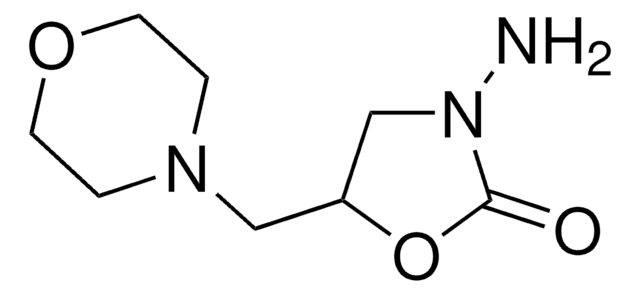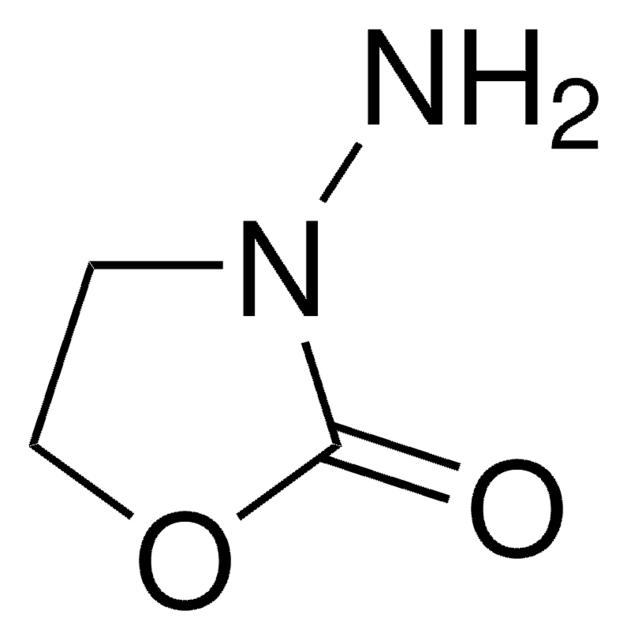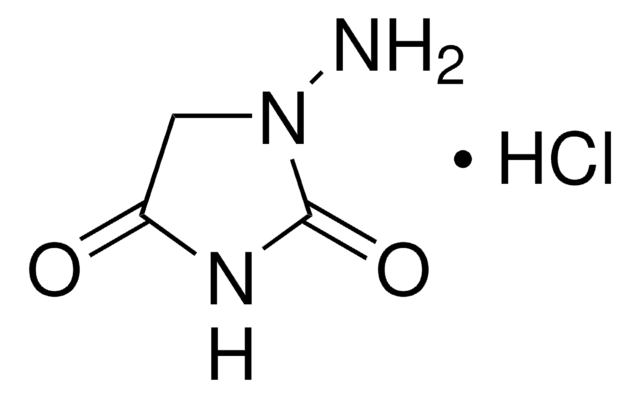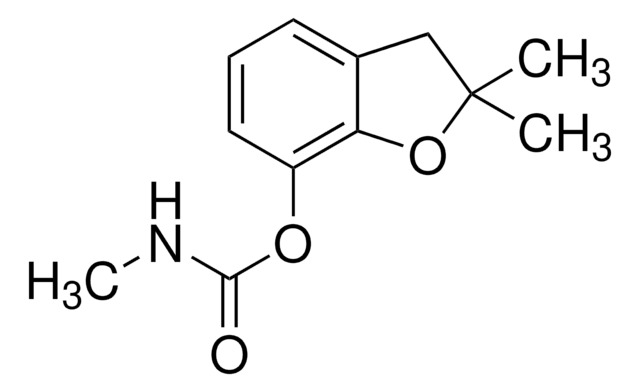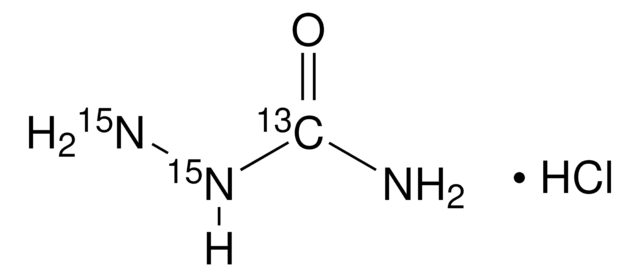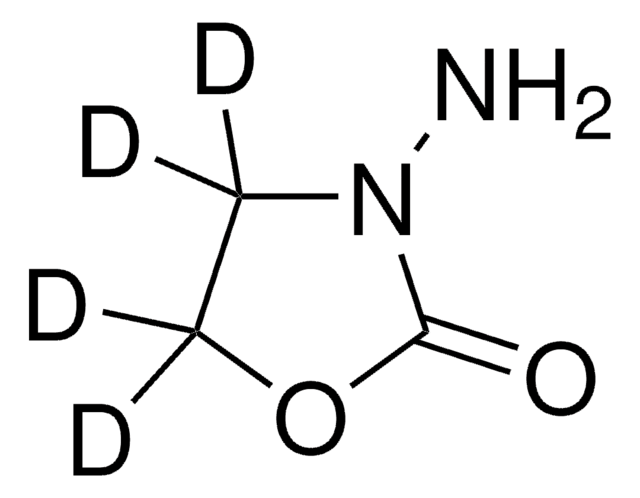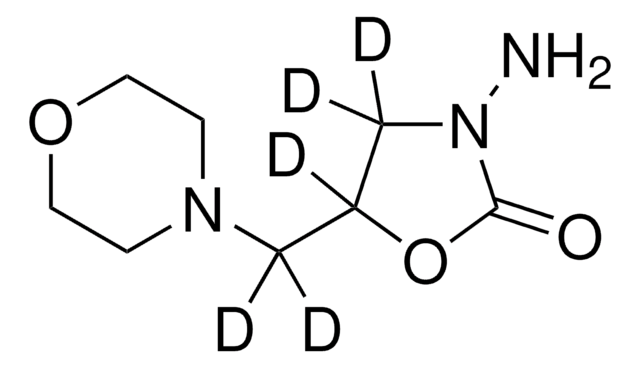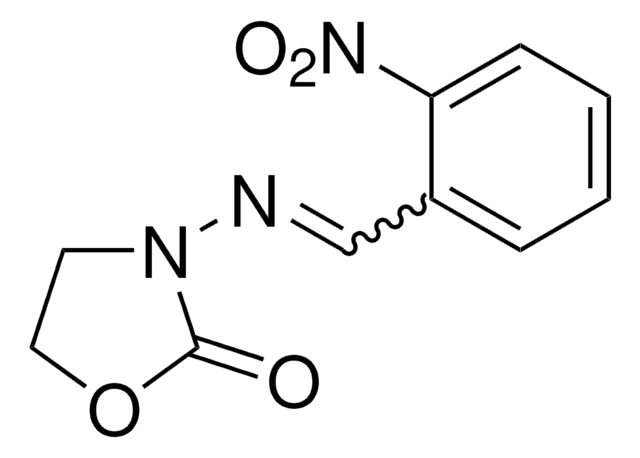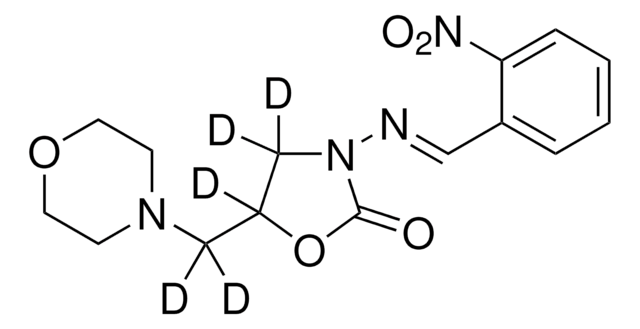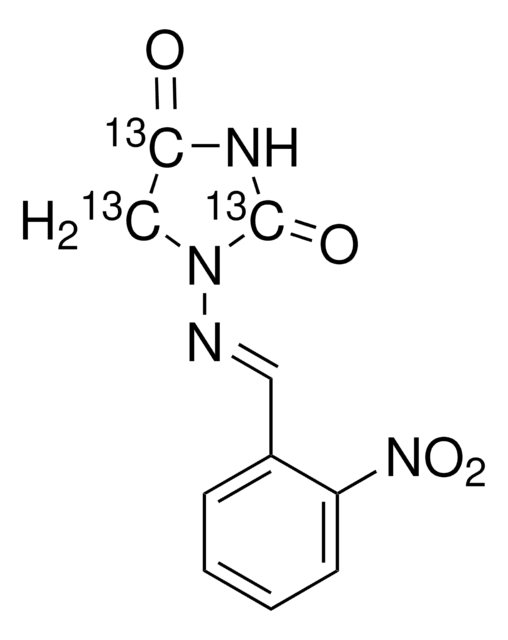33656
Semicarbazide hydrochloride
VETRANAL®, analytical standard
Synonym(s):
N-Aminourea hydrochloride, Hydrazine carboxamide hydrochloride
About This Item
Recommended Products
grade
analytical standard
Quality Level
product line
VETRANAL®
shelf life
limited shelf life, expiry date on the label
technique(s)
HPLC: suitable
gas chromatography (GC): suitable
mp
175-177 °C (dec.) (lit.)
application(s)
forensics and toxicology
pharmaceutical (small molecule)
format
neat
SMILES string
Cl.NNC(N)=O
InChI
1S/CH5N3O.ClH/c2-1(5)4-3;/h3H2,(H3,2,4,5);1H
InChI key
XHQYBDSXTDXSHY-UHFFFAOYSA-N
Looking for similar products? Visit Product Comparison Guide
Application
Legal Information
Not finding the right product?
Try our Product Selector Tool.
Signal Word
Danger
Hazard Statements
Precautionary Statements
Hazard Classifications
Acute Tox. 3 Oral - Eye Dam. 1 - Repr. 2 - Skin Corr. 1B - STOT RE 2 Oral
Target Organs
Bone
Storage Class Code
6.1C - Combustible acute toxic Cat.3 / toxic compounds or compounds which causing chronic effects
WGK
WGK 3
Flash Point(F)
Not applicable
Flash Point(C)
Not applicable
Personal Protective Equipment
Regulatory Listings
Regulatory Listings are mainly provided for chemical products. Only limited information can be provided here for non-chemical products. No entry means none of the components are listed. It is the user’s obligation to ensure the safe and legal use of the product.
FSL
Group 5: Self-reactive substances
Hydrazine derivates
Hazardous rank II
2nd self-reactive materials
ISHL Indicated Name
Substances Subject to be Indicated Names
ISHL Notified Names
Substances Subject to be Notified Names
JAN Code
33656-100MG-R:
33656-VAR-R:
33656-BULK-R:
Choose from one of the most recent versions:
Certificates of Analysis (COA)
Don't see the Right Version?
If you require a particular version, you can look up a specific certificate by the Lot or Batch number.
Already Own This Product?
Find documentation for the products that you have recently purchased in the Document Library.
Customers Also Viewed
Our team of scientists has experience in all areas of research including Life Science, Material Science, Chemical Synthesis, Chromatography, Analytical and many others.
Contact Technical Service